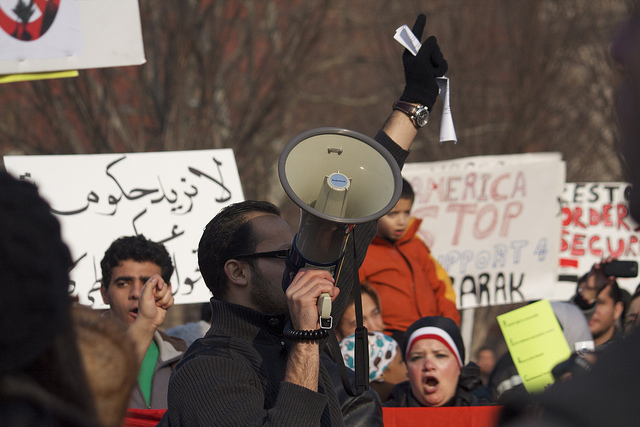Two years ago in Iran, and now in Egypt, digital communications have helped level oppression and censorship. You would think that blocking the Internet in an entire nation would silence people, but, like water seeking its own level, small leaks have turned into rivulets and have flowed back to the world at large. And we are watching – and listening.
Here is a chilling graphic, showing normal Internet communications in Egypt – then, on January 27, 2011 – almost nothing. The Egyptian government hit the kill switch. (See related article).
How do you communicate when communication is blocked? The key principles seem to be resourcefulness and redundancy. Lifehacker and the Wall St. Journal have documented how ordinary phones have become digital lifelines through good-old dialup service. So think twice before ditching your wireline service. Or your modem. Telecomix, through its Wiki We Rebuild has created resources dedicated to a free and uncensored Internet, including this page of resources for Egypt.
One of the marvelous things about Twitter is how it effortlessly jumps to and from the Internet and SMS networks. Another benefit of Twitter is the critical mass of people who use the service. If you communicate on Twitter, you can be confident someone will get your message.
Got hacker skills? Here’s how to repurpose old television satellite antennas to beam a Wi-Fi signal up to 125 miles.
If you’re more old school, you might want to jump back into analog technologies, including shortwave or ham radio, sneakernet, or good old face-to-face communication.
As our communication becomes more centralized on the Internet, you might ask yourself: what would you do in an emergency or natural disaster? How will you be resourceful? How are your communications channels redundant?

Leave a Reply